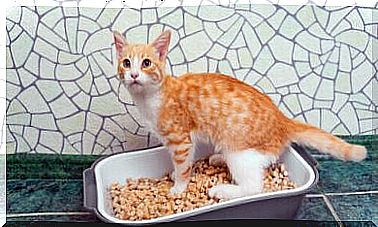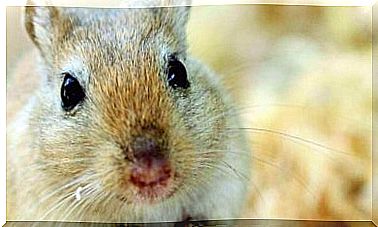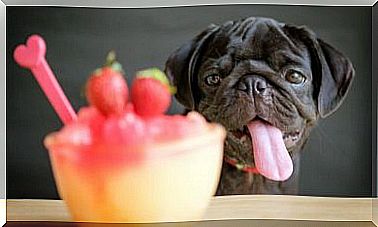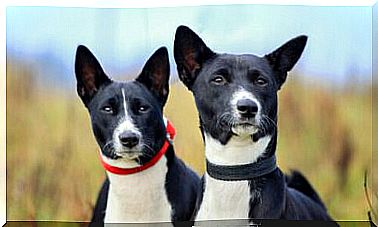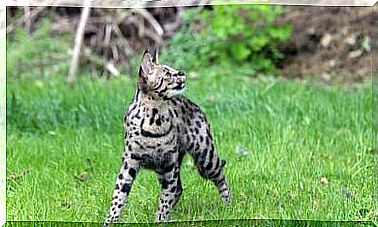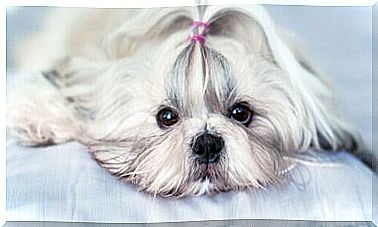Why Shouldn’t We Allow Animals In The Kitchen?
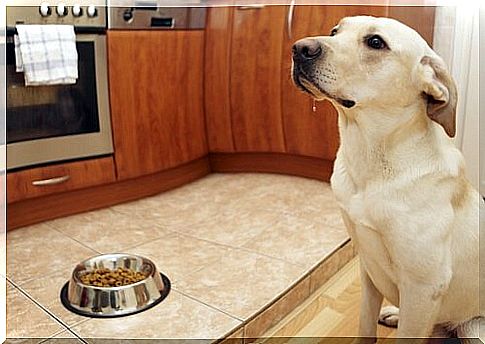
In addition to being unpleasant to find hairs in food, pets can be polluting agents. That’s why this is the main reason why there shouldn’t be animals in your kitchen.
The most common thing in any home is to locate the dog’s food and water dish in the kitchen. However, we should consider placing it elsewhere. Not only because they can be a source of contamination, but also because the animal’s food can also be affected.
Animals, like their owners, can fall prey to foodborne infections. And this tendency increases when an unprocessed food is delivered directly into the animal’s mouth. Problems with poor handling or storage are also the main reasons for poisoning in pet food.
Reasons why there shouldn’t be animals in your kitchen
Animals can be a source of viruses or bacteria. Through their natural fur and secretions, they can contaminate areas where food is regularly placed. The consequences can range from a simple allergy to intestinal and stomach problems.
However, the real problems occur through pet feces. Feces carry parasites and bacteria. That’s why it ‘s important to prevent the pet from spreading its feces around the house. It is important to wash the animals’ feet after defecating and to avoid letting them into the kitchen.
Diseases associated with food contamination by handling animals can be bacterial or viral. In the first case, the symptoms are stomach pain, diarrhea and vomiting, and may need medical attention and treatment.
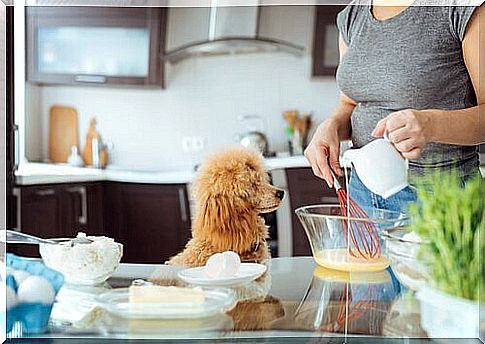
If it’s a viral infection, these uncomfortable sensations can go away after three or four days. However, in both cases it is important to go to a doctor’s appointment.
It’s not just about the animal
When cooking, avoid contact with the animal and wash your hands afterwards. Petting the dog and staying in the kitchen can open a direct channel for infections. Another bad habit to avoid is to feed the animal with the ingredients that are being used, raw or cooked.
It is also important that pets have their vaccinations and deworming treatments up to date. This measure can help reduce the risk of infection, especially through bacterial infections.
Finally, another factor to consider is animal feed. The safest way to feed them is using processed foods.
Prepared foods must be stored well to prevent decomposition. It is also important not to leave food scraps on the animal’s plate.
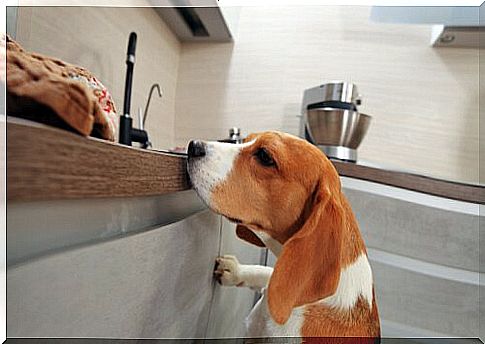
Recommendations about animals in your kitchen
- A space of its own. Ideally, the animal should have its own space to eat, other than the kitchen. In cases where the available space does not allow this, it is important to remove the dish as soon as the animal has finished eating.
- Use different cleaning utensils. We should never use the same sponge to wash the dishes in the house and the pet. Also, we should never feed pets on the same dishes used by humans. The animal must have its own utensils.
- The kitchen is not a bathroom. If the pet needs to do its homework, it should be in a space away from the kitchen. Animal droppings are highly contaminating and transmit disease.
- Avoid letting them stay on the kitchen table. This is usually a very common case with cats, who like to walk over things in the kitchen. This gesture, which may be one of camaraderie, can spread an infection through your fur. It is better to educate him than not to climb on the kitchen furniture.
- Do not feed leftovers to the animal. With this measure it is possible to prevent him from suffering any type of intoxication. One of the most important bacterial infections is salmonella.
